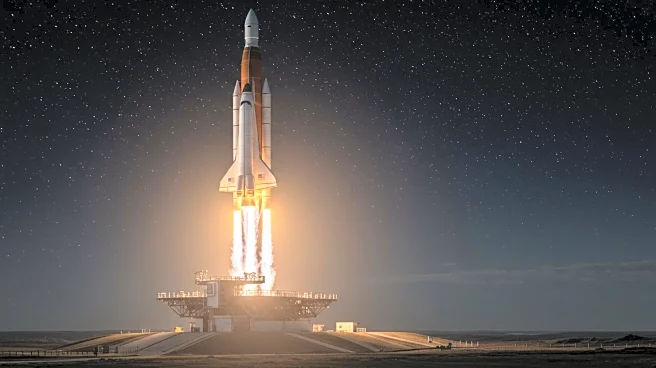What's Happening?
President Trump has issued an executive order aimed at reducing regulatory burdens on commercial space launches and reentries. The order specifically targets environmental reviews and aspects of Part 450, a set of launch safety regulations. It directs federal agencies to override state and local laws that may hinder spaceport development and calls for the replacement of the FAA's Office of Commercial Space Transportation civil servant with a political appointee. Additionally, a new deregulation-focused position within the Department of Transportation (DOT) is to be created. The order seeks to streamline environmental assessments, potentially exempting certain activities from the National Environmental Policy Act (NEPA). This move has been met with both support and criticism. The order also calls for reevaluation of Part 450 provisions related to flight termination systems and hybrid launch/reentry, aiming to improve licensing processes and reduce permitting times.
Why It's Important?
The executive order is significant as it aims to enhance the competitiveness of the U.S. space sector by reducing regulatory hurdles that have been criticized for slowing down commercial space launches and infrastructure development. By streamlining the licensing and permitting processes, the order could encourage investment and innovation in the U.S. space industry, potentially allowing American companies to lead in global space markets. The rollback of environmental reviews, however, is controversial and has raised concerns about potential negative impacts on the environment. The order's emphasis on deregulation could benefit established companies like SpaceX and Blue Origin, while also opening opportunities for new market entrants.
What's Next?
The order sets a deadline of March 2026 for launch providers to obtain Part 450 permissions. The FAA is expected to work on proposed improvements to the licensing process, with a Part 450 aerospace rulemaking committee sharing its recommendations in the fall. The DOT, NASA, and the Defense Department are directed to expedite their environmental and administrative reviews. The creation of new positions within the DOT and FAA to oversee deregulation efforts is anticipated to further streamline processes. The long-term impact of these changes on the U.S. space industry and its global standing remains to be seen.
Beyond the Headlines
The executive order introduces legal flexibility that could reduce permitting time and litigation exposure for operators and investors. This could lead to faster spacecraft development timelines and increased investment in new space technologies. The order's potential to expand NEPA categorical exclusions and exempt certain vehicles from redundant safety requirements could significantly alter the regulatory landscape for commercial spaceflight.









